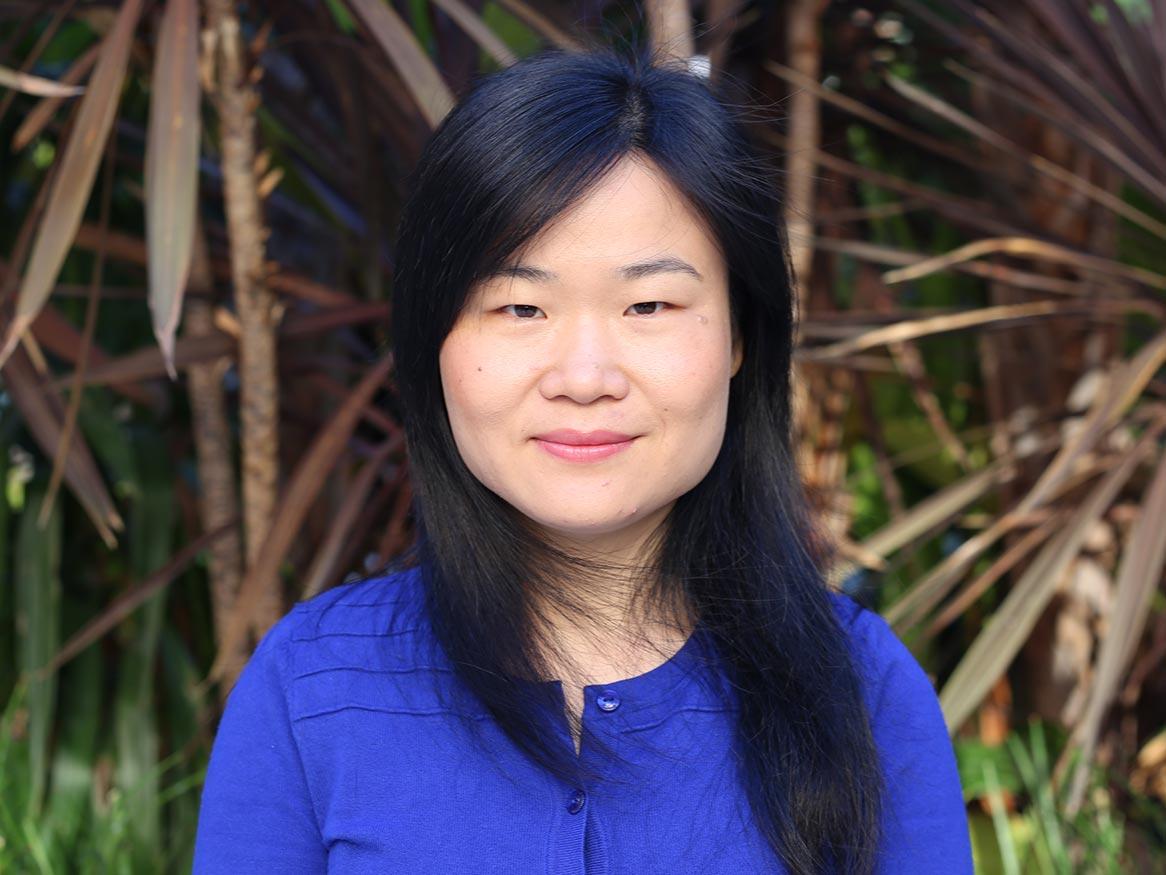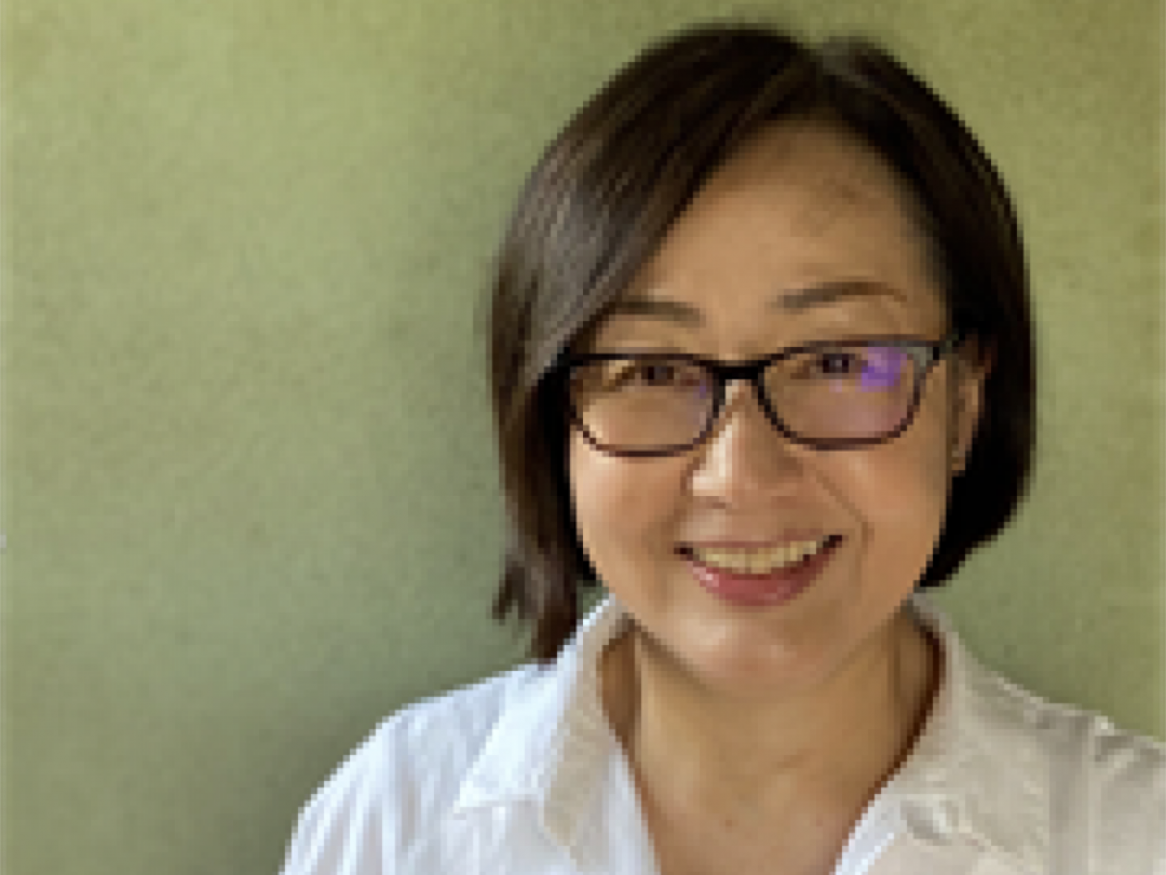Meeting Multilingual Minds
Registrations are open two weeks before the semester commences. Please fill in the expression of interest form.
Would you like to offer help to someone who is learning your native language or improve your intercultural communication skills? If you do, the Meeting Multilingual Minds (3M) program is just created for you as a current domestic student or an international student. The 3M program is aimed at developing your foreign/second language skills and intercultural competence, thus preparing you to succeed in a linguistically diverse world.
At the University of Adelaide, we offer courses and programs in a variety of languages (e.g., Chinese, English, French, German, Italian, Japanese, and Spanish, etc.). If you can speak one of these languages, you are welcome to join the 3M program to engage with the language exchange activities offered in conjunction with our language courses. Through semi-structured and unstructured linguistic and cultural activities in our language tutorials or outside the classroom, you can practise the languages of your choice with a small group of local and international fellow students in an authentic and immersive environment.
By participating in the 3M program, you have the opportunity to build your cultural intelligence, improve your communication skills and make friends. For details of a particular language, please click the language name below. You can also visit Diploma in Languages, University Course Planner to find out more information about our language courses and programs.
Languages
-
Chinese
Have you ever walked into an authentic Chinese restaurant but didn’t know what to order? Have you ever wondered what opportunities you may create for yourself if you learn to speak Chinese, a language spoken by one out of six people in the world? Have you ever imagined enriching your life with 3,500 years of written history with the script that has influenced many languages in the world? If you wish to learn the Chinese language and culture, you have come to the right place.
As the only university in South Australia that offers a Chinese Studies program, University of Adelaide provides Chinese courses from the absolute beginner level to the native level, including immersive in-country study tours and one-on-one interactions with native speakers of Chinese. In addition to highly recommended language courses, we also offer thought provoking courses on Chinese culture and translations between Chinese and English. With a major, minor, diploma or simply some elective courses in Chinese Studies, you will find yourself connected to a much wider world and unparalleled opportunities.
List of courses Study overseas Meet the lovely teachers in Chinese Studies Express your interest
Watch videos about the Chinese program
Contact
Dr Hong Cai
Senior Lecturer
School of Social Sciences
Faculty of Arts, Business, Law and Economics -
French
Bonjour! Throughout history and to this day, French language and culture have had a great influence on the world. French remains the second most studied foreign language in the world. French artists, writers, thinkers, filmmakers, politicians, fashion designers and philosophers have changed, and continue to change, the way the world thinks. The likes of Baudin, Monet, Proust, Varda, de Gaulle, Chanel, and Foucault have had a profound impact on our lives.
French is an official language of all United Nations agencies and a large number of international organisations. What’s more, French remains one of the most widely spoken languages in the world. According to the European Union, 129 million, or twenty-six per cent of the Union’s total population speak French, of whom 65 million are native speakers, with the rest being second-language or foreign language speakers. Outside Europe, French is spoken in many countries in Africa, Asia and the Pacific.
Find out more about French studies Study overseas List of courses Express your interest
Watch videos about the French program
Contact
Associate Professor Benjamin McCann
Associate Professor
School of Humanities
Faculty of Arts, Business, Law and Economics -
Japanese
Have you been to Japan to see the beautiful cherry blossoms, or ski on breathtaking snowy mountains? Have you seen monkeys basking in hot springs, or been shopping in Shibuya, Shinjuku, or Akihabara?
Yes, Japan offers beautiful nature and interesting culture, but it is also a country where you can learn advanced academic knowledge. Japan has many scholars who have received Novel Prizes (7th in the world as of 2022). Japan also has the world's highest life expectancy, and has produced world-famous arts and music including Anime and Manga.
Considering what Japan can offer, learning Japanese language at the University of Adelaide will greatly benefit your academic and professional career. In fact, many of our graduates are currently working for Japanese global companies in Japan and Australia, and even working in the Japanese embassy in Canberra!
Also, learning Japanese at the university can offer you an opportunity to study in Japan during your undergraduate study. Studying in Japan will enhance your academic knowledge, not just of the language, but also culture, communication, international relations, globalisation, plus Japan-specific technology and the country’s social system. We have exchange programs with thirteen famous universities in Japan, including Tokyo University.
Based on your needs, you can study Japanese as a part of your degree (major, minor, or elective), or as an addition to your primary degree by doing a Diploma in Languages. If you have any questions about how you can study Japanese, please contact Dr Masaki Shibata (masaki.shibata@adelaide.edu.au), Discipline Advisor for Japanese Studies. I hope we can see you in our classes!
Japanese studies Diploma in Languages Bachelor of Languages Express your interest
Watch videos about the Japanese program
Contacts
Dr Shoko Yoneyama
Associate Professor
School of Social Sciences
Faculty of Arts, Business, Law and Economics -
German
The long and celebrated history of German Studies at the University of Adelaide reaches back to the nineteenth century. Learn the language used by countless famous musicians, philosophers, poets, and scientists! And make contact with South Australia's enduring German heritage: think of Hahndorf and the Barossa Valley.
German is a key language in Germany, Austria, Switzerland, and other countries located in the heart of Europe. Internationally, Germany has one of the strongest and most vibrant economies in the world and Germany is a world leader in many areas of technology and culture.
Intercultural competencies are increasingly important for understanding cultural difference and global economic, social, and political issues. With a focus on German Studies, you can expect to successfully use and apply your language skills across various fields, for example the Arts, translation and interpretation, business, international relations, tourism, engineering and science, teaching, diplomacy, and the media.
With study pathways both for complete beginners and those with a school background of learning German, our department seeks to foster an engaging, enjoyable, and supportive environment in each classroom. Our aim is to provide students with an authentic and unique insight into the German language and its broader cultures. We also encourage and support to study one or even two semesters in Germany.
Study overseas View study plans Discipline of German studies Express your interest
Watch videos about the German program
With English subtitles
With German subtitles
Contacts
Dr Stefan Hajduk
Senior Lecturer
School of Humanities
Faculty of Arts, Business, Law and EconomicsDr Simon Walsh
Lecturer
School of Humanities
Faculty of Arts, Business, Law and Economics -
Spanish
The pre-eminence of Spanish as a world language began more than five hundred years ago, with the establishment of the Great Spanish Empire, the first real global empire in the history of human kind.
Nowadays, Spanish is spoken by over half a billion people all over the world, and spoken as a first language in over twenty countries in five continents. Besides, Spanish is the most studied foreign language in the university system of the English-speaking world.
At the University of Adelaide, Spanish is taught with an emphasis on pure-beginner students. It offers the opportunity to complete different programs (major, minor, Diploma in Languages) or to take elective courses as a means to get introduced into the language and the cultures of Spain and the countries of Spanish America.
Students completing a Spanish program at the University of Adelaide, have the opportunity to in Spain or Latin America.
Study overseas View study plans Discipline of Spanish Studies Express your interest
Watch videos about the Spanish program
Contact
Dr Paula Plastic
Lecturer in Spanish Studies
School of Humanities
Faculty of Arts, Business, Law and Economics -
English
The English Language Centre is pleased to offer our ‘General English for Academic Purposes’ (‘GEAP’) program for students studying English as a second language. GEAP offers something for all students, from beginners with basic English skills to advanced students seeking high level tuition. To ensure students are enrolled in the appropriate level, they sit a short placement test before their first class. The test involves reading, writing and listening and assesses vocabulary, grammar, written expression and the understanding of meaning in a conversation.
For many goals
Students can study the GEAP as a stand-alone program for personal or professional advancement or to gain credit towards a degree in their home University.Practical
More than just an English program, The GEAP learning style puts an emphasis on developing team work and problem solving skills, giving students the opportunity to display initiative and to build confidence. As language ability improves, students are also developing skills that can be applied outside the classroom, whether for their career or further study.Individual
Every student is different with unique study goals. The GEAP program can be tailored to meet individual goals through our choice of GEAP Specialisations. Whether students are looking to boost their TOEFL or IELTs scores, learn about Australian culture or develop business language skills, there is an option for everyone.More information on GEAP Express your interest
Watch videos about the English program
-
Italian
Are you passionate for arts, fashion, industrial design, motoring, soccer, cycling? Do you love pasta, pizza, prosecco, tiramisù and gelato? Do you enjoy sipping an aperitivo or an espresso while sitting in a piazza? You don’t know how to pronounce “bruschetta” when you order one at the restaurant? Are you planning to visit the country with the highest number of UNESCO world heritage sites in the world? Do you want to connect with that part of your family based in Europe? Are you curious to know more about one of Australia’s major community languages? Do you want to improve the language you learned at school? Are you planning to become an inspiring language teacher? Or perhaps you need to connect with a leading economy in the aerospace sector for your career? If you answered YES to at least one of these questions, then you must learn Italian as a major, or add it to your degree as a minor!
The University of Adelaide has offered Italian Language and Culture for 40 years through Flinders University and you can enrol as a cross-institutional student. Are you ready to discover your Italian side? Forza, ti aspettiamo!
Discover Italian programs Diploma in Languages Bachelor of Languages Express your interest
Student testimonials
Italian was never offered to me at school, so taking it at University was a no-brainer. The teachers at Flinders are outstanding and have all imbued me with their passion for the subject. Over three years I have learnt so much, and I now have a second language under my belt—extremely valuable for employment opportunities! The classes on offer are more vibrant and engaging than ever, so if you have even an inkling of interest in taking Italian, I encourage you to pursue it.
Heloise Baker
For me this was an easy option, being Italian and being surrounded by the language my whole life it was a no brainer! I didn’t get the opportunity to study Italian at school because it wasn’t apart of the curriculum so learning Italian growing up was more difficult for me. In more recent years I also had the aspiration to become a teacher, and if i was to teach any subject, it would have to be Italian. I would also love the opportunity to try and teach in Italy one day or even live there, so studying and trying to master the language is a must.
Despite having to miss out on a lot of University experiences due to COVID, there is no doubt that the journey over the last 3 years has been worth it. You get to meet a lot of new people on the way who have similar interests and who come from a similar background as yours, as well as learn a lot about your chosen language.
I highly recommend that any future student that wants to learn or improve on a language to study it at university. Personally I felt that studying a language became more of a “want to do” than “have to do”, and in terms of homework/studying that is always a helpful feeling.
Dylan Tripodi
I have always been encouraged to study languages from a young age. I chose Spanish and Italian in high school and decided to continue Italian in university. I always found the Italian language so melodic and beautiful with the way words are pronounced and accents are emphasised. Italian is like a song with notes that go up and down. Furthermore, Italy’s history, people, architecture, art, food, fashion, and vehicles are highly appreciated worldwide, which increased my interest for the language. Studying Italian in university has been a wonderful experience. Not only do you learn grammar and vocabulary, you are also encouraged to speak in the language which exposes you to the full experience of learning a language rapidly and simultaneously, grasp an understanding on the the iconic Italian mentality. This includes interpreting the thoughts, attitudes and behaviours of Italians. Now when I hear the Italian language, I feel a sense of warmth as I feel connected to “my people”. Italians have been in Australia for generations and hence, it is highly important to preserve the Italian language before it becomes extinct. Apart from enjoying the language, I love knowing I am a part of this preservation and encourage others to do the same. I highly recommend students partake in studying the Italian language alongside their primary degrees. It’s fun to learn, highly useful for work, travel and overall, an impressive skill to have. Study Italian. You won’t regret it.
Mina Dobrijevic
From the beginning of primary school to my final years at university I have always maintained my study of languages. It has assisted in developing my written and oral communication skills in both English and foreign languages, provided me with a creative outlet and contributed to my personal confidence. I chose to study Italian at university for various reasons including my ongoing appreciation for Italy’s fashion culture, fascination of Italian history, and interest in wine law and its connection to Italian viticulture. Throughout my Italian studies I have been privileged to learn from dedicated teachers with a wealth of knowledge about the Italian language, Italy’s history, and other niche areas such as Italian film and theatre. Having studied a language, it has provided me with a great talking point for many successful job interviews and I now have a distinct edge in the job market. I strongly recommend all students, no matter what pathway you choose, to incorporate the study of language in your time at university.
Sophie Tait
Continuing Italian at university is one of the best decisions I have made. I have enjoyed the opportunity to continue my study of the language after high school, and to engage with the language and the culture at a deeper level amongst other similarly passionate people and from a highly enthusiastic and intelligent teaching team. Learning Italian has broadened my global understanding and has enhanced my understanding and appreciation of languages as a whole as an important facet of the diverse state we live in. It is also so wonderful to contribute to the preservation of a language outside of its native country, and it is a great opportunity to actively foster and develop interculturality.
Language learning as a whole is so beneficial for the brain, for the global perspective, for the interculturality, for the ‘edge’ in the workforce and much more. Taking up a language, especially Italian, is something I highly recommend to students.
Samoda Silva
Contact
Dr Stefano Bona (Flinders)
Lecturer
College of Humanities, Arts and Social Sciences -
Indonesian
Selamat datang! If you are looking to learn a language which can expose you to a vast and exciting new culture or connect you with the world’s fourth largest population, then studying Bahasa Indonesia will be a valuable addition to your degree. Not only is Indonesia the largest archipelagic country in the world, with over 18,000 islands and an eye-watering diversity of culture, but it is also right at the doorstep of Australia, only a two-hour flight north of Darwin.
Learning Bahasa is something which will allow you to explore world renowned locations such as Raja Ampat, Pulau Bali and Komodo Island, the culturally rich island of Java and bustling Jakarta, as well as far-flung locales like the untouched interiors of the Borneo jungle, the world’s third largest rain forest.
As Indonesia is an extremely close and important neighbour to Australia, Bahasa language skills are something which are increasingly sought after. If you see yourself working closely with a foreign country during your career, be that in public health, diplomatic roles, development, teaching, conservation, or anything else, learning Bahasa Indonesia will be able to give you an introduction to our incredibly diverse neighbour.
Indonesian can be taken as a Major or Minor in your degree, or as a separate Diploma if you would like to graduate with an additional bit of paper. Regardless of which best suits your degree structure, learning Bahasa at any level gives you the opportunity to take your university experience up a notch.
Study overseas Diploma in Languages Major and minors Cross-institutional study form Express your interest
Watch video about the Indonesian program
Student testimonials
Choosing to study Indonesian alongside my psychology degree has been incredibly rewarding. The small class makes for a very safe and supportive environment. We have lots of fun discussions about language and culture, with everyone bringing a different background and perspective. After my first year of Indonesian study, I travelled to North Sumatra where I had the opportunity to put my language to the test! Although it was daunting at first, it was incredibly exciting to communicate with people I would otherwise never be able to interact with. I found that the locals were appreciative and often surprised that I was learning their language and were forgiving of all the mistakes I made! Having even a basic understanding of Indonesian added an extra level of depth to my experience of travelling through the country and gave me the confidence to go to the less touristy areas including trekking through the jungle to see wild orangutans and elephants! I couldn't recommend studying Indonesian more highly!
Asha Reilly, Bachelor of Psychology
The most amazing thing about learning a second language is the cultural barriers it allows you to quickly breakdown when travelling overseas.
Studying at University has turbo charged my language skills, and has given me the confidence and skills to travel to more remote and less touristy parts of Indonesia, where I was forced to not use any English for days at a time, and was able to visit incredible places far from the tourist path.
If you love to explore, travel, or get to know new people, then I can't recommend language study more! Even if it's just to meet the other adventurous and interculturally inclined people in the class!
Thomas Begg, Bachelor of Arts
Taking Indonesian in a Diploma of Languages has really brought some aspects of my degrees into focus. Not only has it exposed to me another culture, but it has also shown me where my degree might be able to take me.
After taking Bahasa for a semester, I was lucky enough to be able to take a six-month exchange to Central Java and so far this has been the absolute highlight of my undergraduate studies! Being able to summit volcanoes or visit the tropical islands of Indonesia every other weekend, all while being immersed in a completely fascinating and warm-hearted culture, is something you don’t tire of quickly.
Being able to navigate and make yourself comfortable in a foreign country is a skill set which really allows you to take what you learn in university into any environment. While taking work at a Thinktank and investigating issues in sustainable development and ecology I was really able to put theory into practice while also practicing communication across cultures. These skills are something that I’ll be able to carry throughout the rest of my degree and hopefully into my career.
Thomas Bartley, Bachelor of International Relations with Bachelor of Arts (Economics), Diploma of Languages (Indonesian)
Contact
Thomas Power
Lecturer
College of Humanities, Arts and Social Sciences





